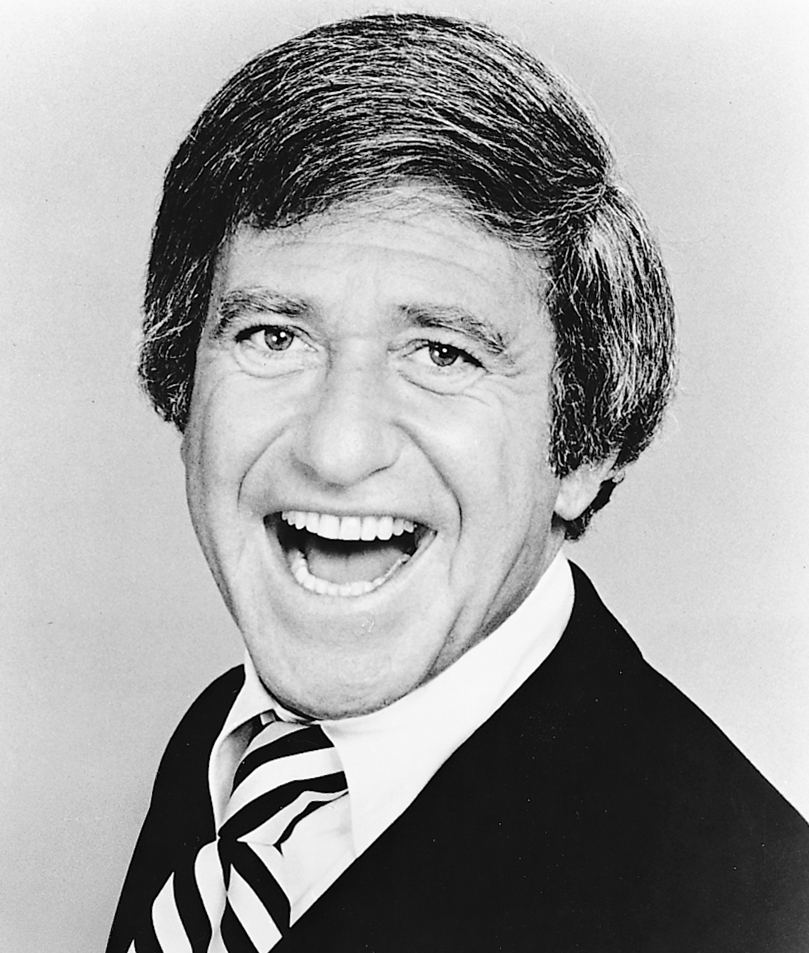He was a prankster, performer and pioneer. Television was never the same after Soupy Sales.
By John H. Houvouras & Clint McElroy
HQ 22 | AUTUMN 1995
He was the king of early morning television, the prince of pies, an ambassador of goodwill for his hometown, and a jester whose kingdom encompassed radio, television, movies, books, records and the stage. For years, he ruled the airwaves with his own raw style of physical comedy and, along the way, became Huntington’s most-famous son. His name … Soupy Sales.
When it came to television, Soupy Sales was like nothing viewers had ever seen before. Part of it was the feeling that, even though you’d heard the jokes before and seen the sketches, you were never totally sure what was going to happen when Soupy was on the screen. He was on the edge.
Years before comedians of the 1970s went there, Soupy was on the edge. He discovered it and staked out the first homestead. He would run full-speed and go crashing across the set. He would break into a dance at the slightest provocation. The looniest, most wigged-out people you ever saw showed up at his door.
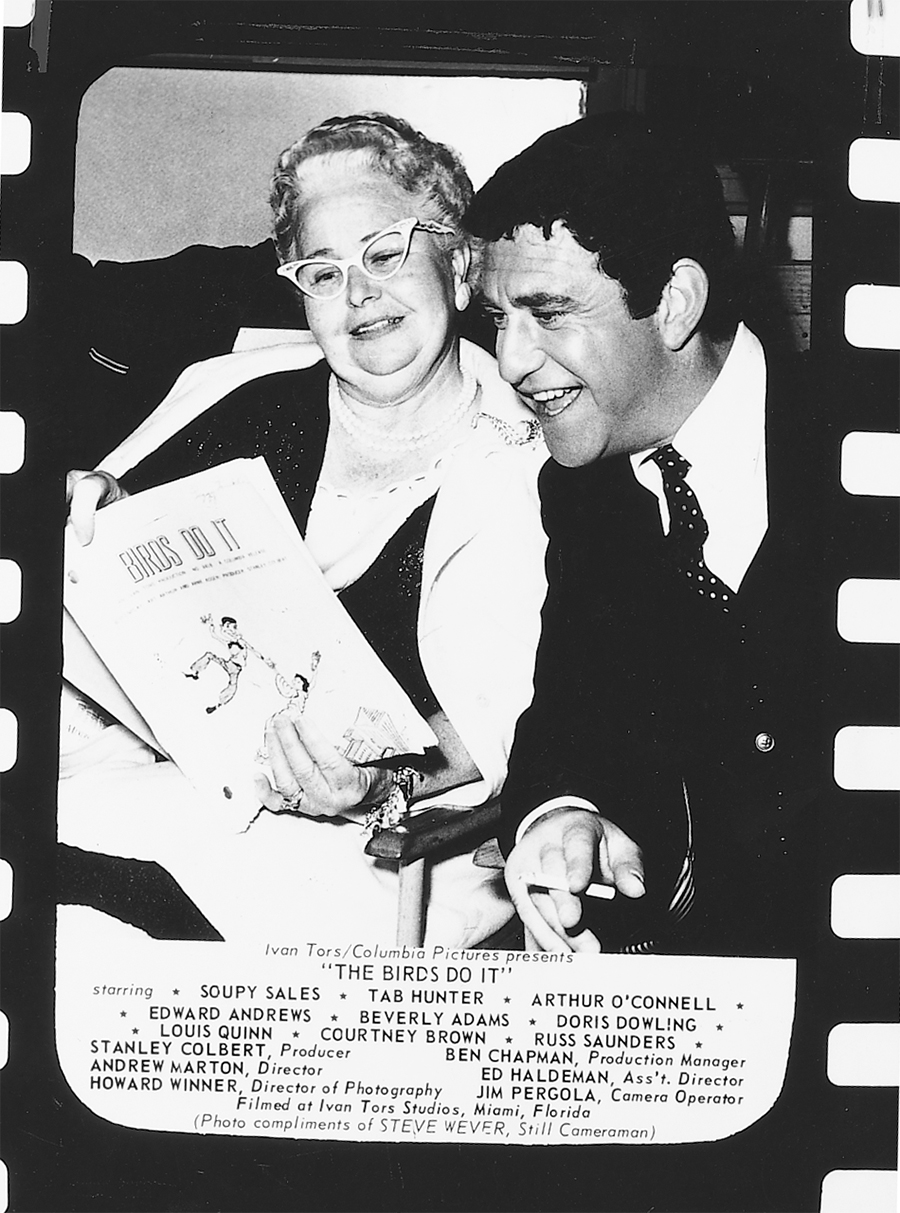
Whether it was Detroit in 1953, Los Angeles in 1960 or New York in 1964, it was the same thing every time. The show premiered, the audience was captured. He came, he saw, he conquered. Armed with cartoons, clips, crazy characters and cream pies — he conquered.
His story is one of triumph, adversity, and triumph once again, repeated every few years throughout his amazing run. His career is one of incredible resiliency and diversity. More than just a children’s jester, his talent has taken him from local radio to network television to the silver screen. He has recorded hit songs, penned a couple of books and refined a stand-up routine to near perfection.
But through it all, he has never forgotten his roots. Add up his thou-sands of appearances on screen through the decades and you’re sure to find a plug or two for Huntington somewhere in there. As many of his closest friends say, he is the greatest “goodwill ambassador” the city has ever known.
Despite his playful persona though, there is a sentimental side to the comedy legend, especially when he speaks about his hometown.
“I’m very emotional,” he whispers softly. “I have strong emotional ties to this town. I love it here. It doesn’t make any difference where I am or what I’m doing, when I think of home, I think of Huntington. It’s where I spent the happiest years of my life. And I wake up sometimes and I just know I’ve got to come back.”
We have watched him over the years from his early days as the zany host of “The Soupy Sales Show,” to the pepper-haired wise cracker on “What’s My Line?” to the distinguished gray-haired recipient of numerous awards for his pioneering work in the entertainment industry. And while Soupy Sales will turn 70 in January, he hasn’t changed a bit. He’s still the crazy class clown who always makes us laugh, whether at a night-club in Las Vegas or in a friend’s backyard in Huntington.
If it wasn’t for bowling, Franklinton wouldn’t have had any culture at all. The population there was 1,500 and it never changed. Every time a baby was born a guy left town.
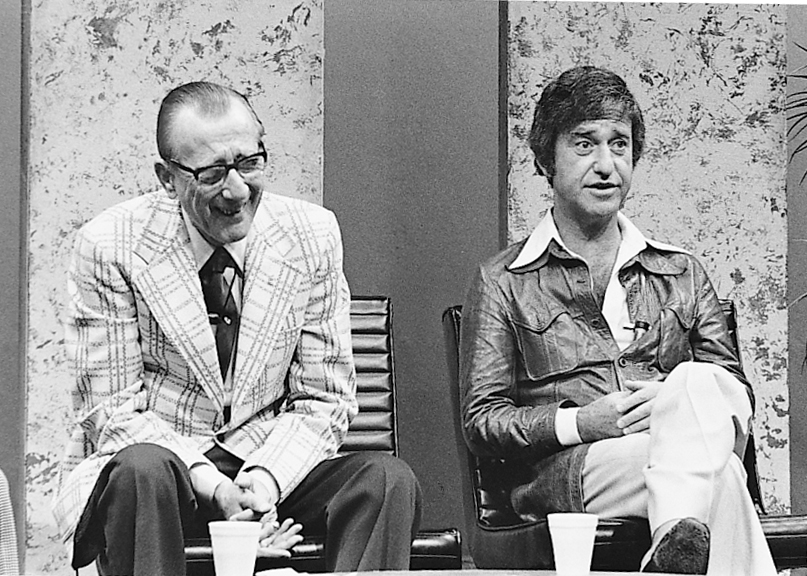
He was born Milton Supman in Franklinton, N.C. on January 8, 1926. He was Irving and Sadie Supman’s third son. His older broth-ers, Leonard and Jack, had the nicknames “Hambone” and “Chickenbone” and it wasn’t long before people started calling him “Soupbone” and “Soupy.” The Supmans were the only Jewish family in the area and the three brothers often used comedy as a way to cope with the prejudice they faced. Their father died in 1931 of tuberculosis when Soupy was just five. His mother eventually realized she couldn’t run the family dried goods store by her-self and remarried in 1934 to Felix Goldstein, a traveling salesman. The family moved to Huntington when Soupy was nine.
“I was so excited,” he recalls. “Where I came from the main street ran through a car wash.”
Ever nostalgic about the past, he can still remember each of his old Huntington addresses.
“Let’s see, 126 11th Ave. West, 510 11th Ave. West and 110 10th Ave. West,” he rattles off. “I was a west end boy.”
The seeds for his career in comedy were planted in Huntington where he could often be found at the movies, his greatest influences being the physical comedy of Laurel and Hardy, the Ritz Brothers and the Marx Brothers. By the time Soupy entered Huntington High, his own comedic pranks were becoming legendary.
He gradually whittled down the bottoms of two canes used by an elderly teacher until one afternoon the man ran screaming into the hall, “I’m taller! I’m taller!”
But despite local folklore, he denies ever trying to get a goat on the roof of the high school.
“I tried to get a couple of girls up on the roof,” he quipped to a group of students at his alma mater in 1987, getting a good laugh.
His antics won him favor with his fellow students and he was voted “Most Popular” at Huntington High School.
“I guess I was pretty funny running around there. But, if you look like me you’ve got to be funny.”
He graduated from Huntington High in 1943 and enrolled at Marshall College where his humorous antics would rise to new levels.
I remember driving down Second Avenue. That’s where all the prostitutes were. Only then they were called ladies of the evening. Do you know why? Did you ever see one during the day?
At Marshall he was known by friends as “Suppy” Supman and was an aspiring sports writer. The Parthenon, the school’s student newspaper, assigned him to cover intramural sports, but he skipped the events and instead chose to go dancing at the Shawkey Student Union. He was eventually fired by the sports editor, Ernie Salvatore, for spending too much time delivering punchlines and not enough time collecting bylines.
“Ah, the Student Union,” he laments. “You’d pass through, grab a quick dance and go to class.”
But Salvatore and Sales would later reconcile and team up on a fast-paced radio talk show. Salvatore was the straight man, Soupy the ham.
“I could barely get a word in,” Salvatore recalls. “Soupy was always cracking me up. He was crazy.”
Crazy indeed. Like the time he attended a Marshall University basketball game. Walking to the game with some friends, Soupy found a dead pigeon in the street. He pocketed it and continued on to the game. At the end of the first half, the referee fired off a blank pistol, up in the air, towards the rafters. No buzzer. This was the 1940s. When the pistol fired, Soupy lobbed that dead pigeon high through the air until it smacked the court at the referee’s feet. The ref stared at the ex-pigeon, glanced at his gun, and then looked at the rafters. The crowd went crazy.
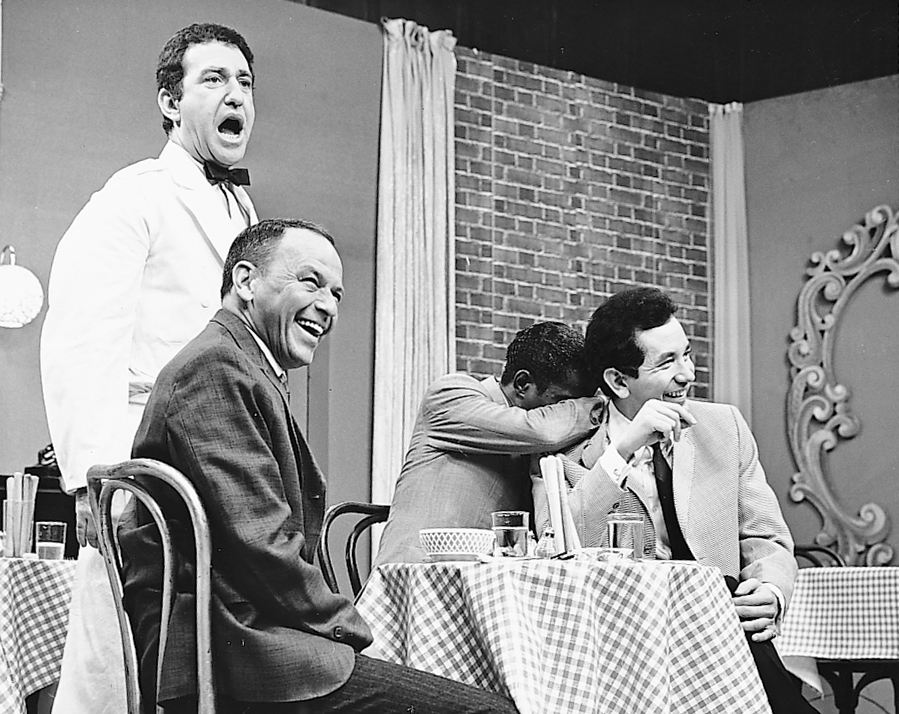
In class, Soupy was much the same, even in the presence of the legendary W. Page Pitt. One morning, the esteemed journalism professor challenged the class to come up with a story in less than an hour about a brutal murder that had occurred in Milton involving a man who had butchered his wife with an ax. Pitt then went on to hand out an 8×10 glossy photograph of the murder victim. Girls were fainting, others throwing up, while Soupy calmly explained, “The story’s easy. She’s got a splitting headache.”
“Get out of here,” Pitt shouted.
His good times at Marshall University were interrupted when he was drafted in World War II. He served on the U.S.S. Randall at the invasion of Okinawa, the last offensive of the war and the setting of desperate kamikaze (suicide planes) attacks by Japan.
“You’ve never seen so much fighting and shooting in your life,” he recounts. He still has nightmares about the war to this day.
It was in the Navy that he tried broadcasting for the first time on the ship’s intercom system.
“I had a chance to do shows aboard ship. And it was ideal because you had a captive audience. After all, they weren’t going to walk out on you.”
And it was during the war that he began to create one of his most memorable characters.
“I’d always been a big fan of Jack London and White Fang. I had always pictured this dog as being a friend of mine, but the catch was you couldn’t control him. And one night I was playing, Hound of the Baskervilles for the ship and when Sherlock Holmes got involved with the dog, I heard the growling and said to myself, ‘There’s White Fang!’”
When he returned to Huntington after his tour of duty, he continued his studies and met and married Barbara Fox. Still in college, he took his jokes on the road and worked a few seamy nightclubs in the region.
“It was rough. They played the ‘Star-Spangled Banner’ every 15 minutes just to see who could still stand up.”
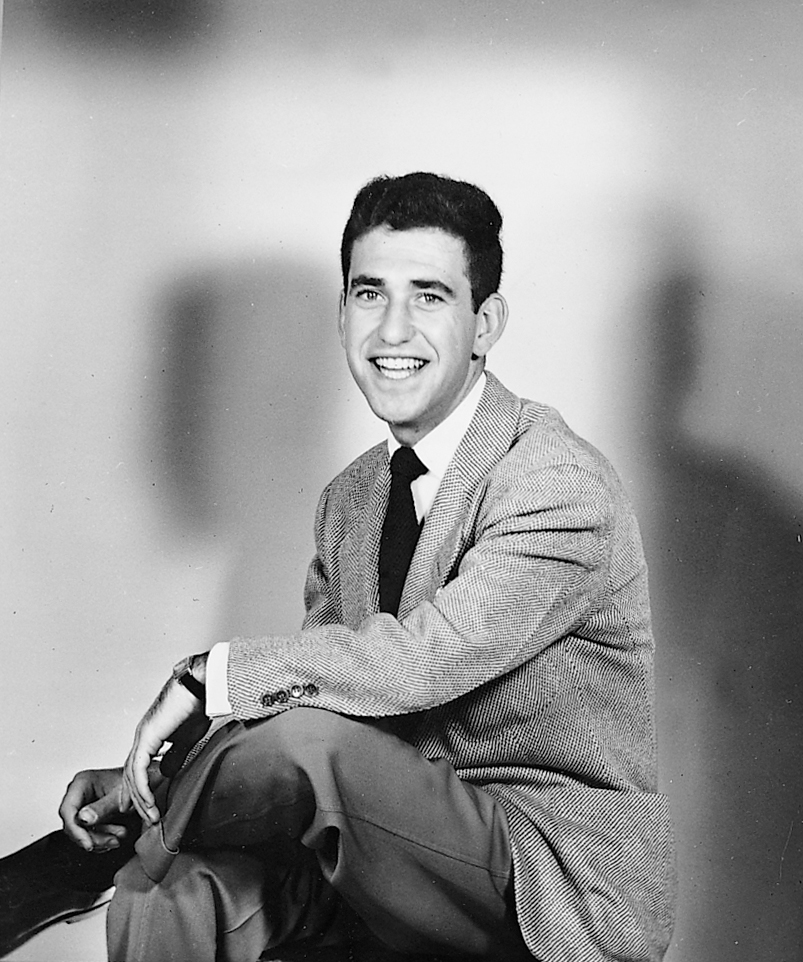
But on those rare occasions when he was able to win over a crowd, he knew instinctively that his life calling would be in entertainment.
“There’s no feeling in the world like the sound of applause and laughter, particularly if it happens to you.”
While still in college, Soupy went looking for a job in radio. He knocked on the door of WPJL, a 250 watt station, hoping to be hired. But the manager informed him that he had to “start small,” to which Soupy replied, “There isn’t anything smaller than a 250 watt station.”
“He grabbed me and threw me out on the sidewalk,” Soupy recalls. “Thank God I ran into Dean Stern at WHTN whose offices were across the street.”
He was hired by WHTN for $20 per week and soon became the top-rated DJ in Huntington.
Soupy took away from his years at Marshall University some of the fondest memories in his life.
“That was a special time. The area was alive and jumpin’ with great bands at Dreamland Pool, St. Cloud Commons, The Hotel Frederick and The Prichard — performers like Tommy Dorsey, Glenn Miller, The Bernie Theis Band, Howard Jennings and the Guy McComas Band.
“And Huntington had some of the best eateries — Jean’s Swiss Shop had the best hamburgers, Schoenbaum’s had good food, Brackman’s had the best chili and The Whirligig was THE eating place in town. Man, those were the days.”
After graduating from Marshall College in 1949 with an A.B. in Journalism, he landed a job in Cincinnati — the first step in his phenomenal climb to the top.
Huntington has a great device for removing snow. It’s called July!
After moving to Cincinnati, he changed his name from Suppy Supman to Soupy Hines (after a popular “soup” company of the time) and hosted a television dance show for teenagers entitled, “Soupy’s Soda Shop.” Despite his vision for a teen-oriented show that played current hit songs, it was quickly canceled.
“They said no one wanted to see teenagers dance. So six months later Dick Clark starts ‘American Bandstand.’ He was on for 35 years!”
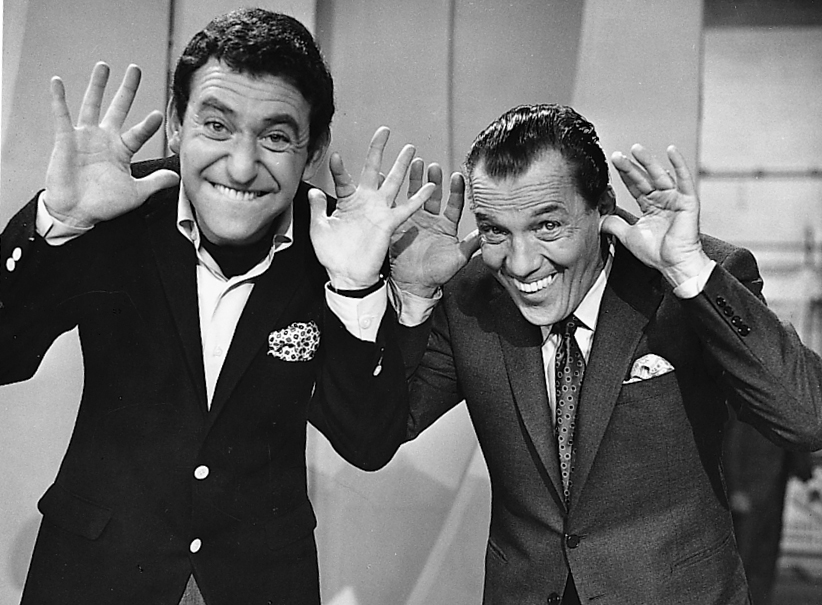
Although Soupy’s first show was canceled, he found himself in the middle of a burgeoning industry. The 1950s would prove to be the “Golden Age” of television and Soupy Hines was at the right place at the right time.
After Cincinnati, Soupy landed another television gig in Cleveland. While the pilot was voted the “Best New Show of the Year” in the Cleveland Plain Dealer, it was promptly canceled the next day.
Undeterred, Soupy moved on to Detroit where in 1953 he starred in “Lunch with Soupy Sales” and began his ascent as the Motor City’s top-rated television personality for seven years. Due to a sponsor’s request, he had changed his new last name, Hines, and chose “Sales” after comic great Chick Sales.
His first big break came in 1955 when the ABC network gave him a shot as the summer replacement for their hit children’s show, “Kukla, Fran and Ollie.”
“Lunch with Soupy Sales” was the first non-cartoon Saturday morning show to air on ABC. The hip new program was populated by the meanest dog in the U.S.A. (which we never saw except for a paw), a dancing hippo (which we did see), flying pies (which we saw every few minutes), and once, even a naked lady (which we didn’t see … but Soupy did). And in the middle of it all was a skinny kid from Huntington, W.Va., with a face that looked like it was made of Silly Putty and a mouth that never shut.
The jokes were horrible, the set was cheap, and the pacing was insane. But between the audience and Soupy, it was love at first sight. The show began to cultivate a diverse viewing audience with children, teenagers and even adults tuning in. In fact, nearly 65 percent of the “kiddy show” was made up of adult viewers.
“Soupy grabbed an audience of the very young, their moms and dads and teens,” notes Dick Clark. “That’s almost impossible to do. He became everybody’s favorite guy.”
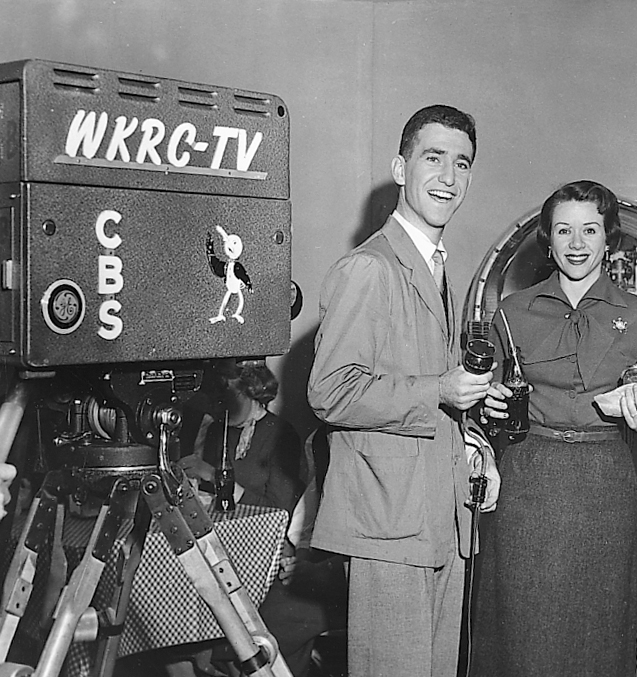
He even started a late night show, “Soupy’s On,” designed specifically for his adult fans. But his grueling work ethic which yielded some 11 hours of programming each week was beginning to take its toll. “It cost me a lot in the end as far as my family was concerned.” He and Barbara were eventually divorced.
“I was having family problems and I said to myself, ‘I think it’s time I move on because I don’t want to be 65, sitting around having a drink one night, and wonder if I could have done it in another market.’”
So in 1960, he moved to Los Angeles and within a year built his “Soupy Sales Show” into the number one program in the market. In addition, he received more fan mail than all of ABC-TV’s network shows combined.
“Soupy had arrived,” notes an A&E Biography Special on the life of Soupy Sales. “He had come a long way from his early dreams of stardom nurtured in the movie theaters back in Huntington. Soupy Sales had become America’s favorite funny man.”
Stars lined up for a chance to be walloped with a Soupy Sales pie. A 1961 episode with Frank Sinatra was the first show to beat the highly rated long-run TV show “Rawhide.” Sinatra was followed by such pie-faced notables as Bob Hope, Tony Curtis, Burt Lancaster, Mickey Rooney, Jerry Lewis and numerous others. But for all the custard pies that Soupy Sales has delivered, he has received more than his fair share. To date, he is closing in on 20,000 pies of his own, on and off camera.
“I used to look like Cary Grant before that,” Sales quipped during an interview with Bob Costas on NBC. “When all is said and done I’ll probably be remembered for getting hit in the face with a pie.”
Despite the fact that ratings were at their peak, the industry was moving away from producing shows in-house and instead opting to buy syndicated programs. As a result, “The Soupy Sales Show” was canceled.
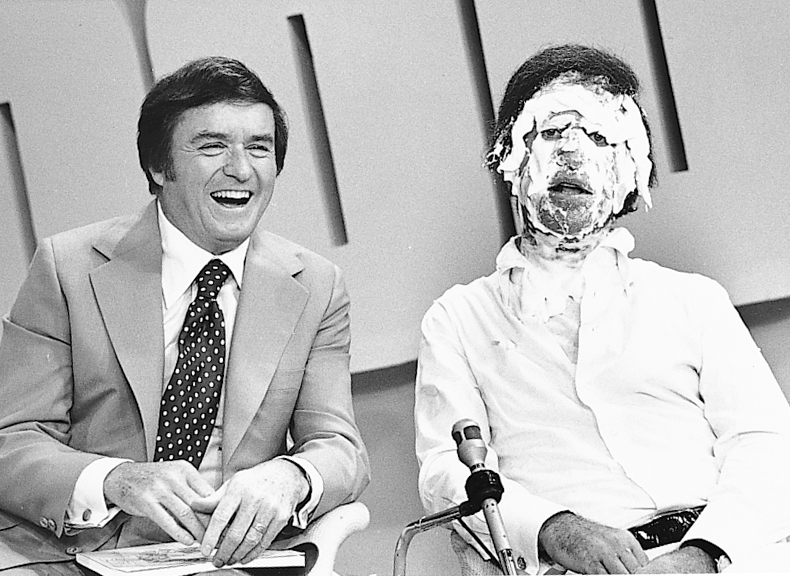
For two years, Soupy Sales couldn’t find a job. He was living off of his savings when he finally received a phone call from a television station in New York.
In 1964, he brought “The Soupy Sales Show” to the Big Apple and it soon became the biggest program of its kind in television. New Yorkers embraced the lovable prankster from Huntington, W.Va., as one of their own.
On New Year’s Day, 1965, the network told Soupy he had to be on the air, even though he didn’t want to be. Soupy was ad-libbing freely. Remember, this was live TV. When they came out of a commercial break, the floor manager pointed and Soupy hunkered up to the camera in that trademark “in-your-face” style of his and said:
“Hey kids, last night was New Year’s Eve and your mom and dad were out having a good time and they’re probably still in bed. What I want you to do is tiptoe into the bedroom, don’t wake them up, and find your mom’s purse or your dad’s wallet and get some of those green pieces of paper with pictures of guys with beards.”
He then told the kids to mail the pieces of paper to their Uncle Soupy and in return he’d send them a postcard from Puerto Rico. It might have been the funniest bit he’d ever come up with.
But his bosses didn’t think so and quickly suspended him. But the suspension backfired when the station was flooded with protests from fans. Thousands of kids picketed the building every day and rallied around their hero. He was brought back and as a testimony to his incredible popularity, the station moved him to a new time slot, going up against the highest-rated news show on network TV — “The Huntley Brinkley Report.”
“Jim and Tammy Bakker probably saw that show and that’s where they got their idea,” Soupy jokes.
In 1965, while the country was being invaded by The Beatles, Soupy Sales’ zany creation of the dance “The Mouse” took the nation by storm. His recording of the song sold over a quarter of a million copies in a week in New York, and 25,000 copies were sold in a single day in Los Angeles. The song went gold and even won a Grammy.
As a result, Soupy was invited on “The Ed Sullivan Show” where he performed the song and dance. Sullivan then broke an 18-year precedent by inviting Soupy back the following Sunday — something never done before.
“Within a few months, he had become a virtual industry, a merchandiser’s dream come true with lunch boxes, dolls, trading cards and fan magazines,” notes the A&E Biography Special. “Soupy mania was sweeping the nation.”
But Soupy was far from finished. On April 16, 1965, shattering all records and surpassing all expectations, he opened for a 10-day Easter Week show at the New York Paramount co-starring The Holleys, Shirley Ellis, The King Curtis Band and Little Richard. The shows broke the attendance records set by Frank Sinatra’s performances there a generation before. The headlines read: “Soupy Sales and Throngs of Teen-Age Fans Revive the Paramount!”
The size of the crowd was so overwhelming that TIME magazine reported: “The crush broke the glass on the cashier’s box.” Without doubt, this was one of the most exciting events in show business history.
With his popularity soaring to new heights, he made his first major motion picture, “Critic’s Choice,” which starred Bob Hope, and later landed the leading role in the movie, “Birds Do It.” He insisted on having the world premiere of the film in Huntington — another example of his loyalty to his hometown. But Soupy took it all in stride.
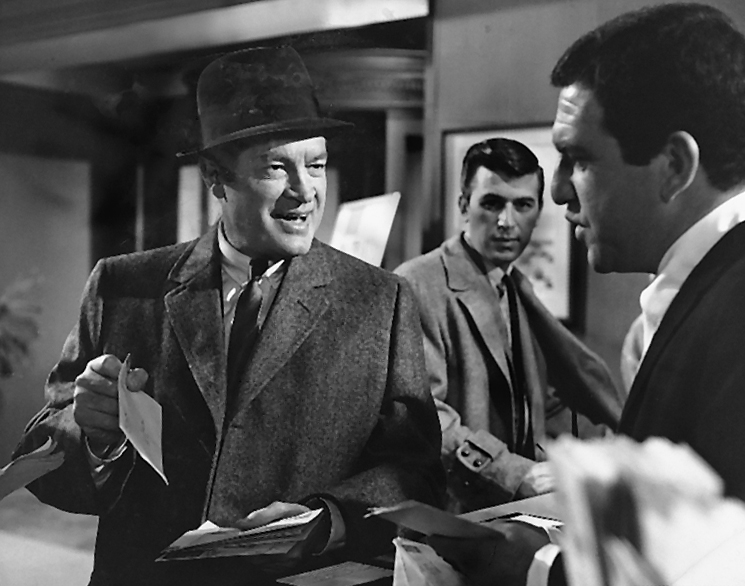
“Did you ever see that movie of mine, ‘Birds Do It?’” he recently asked. “Terrific. Soupy Sales flying around. I think that’s where they got the idea for ‘The Flying Nun.’ That movie is still around you know. Some states show it for capital punishment.”
By 1966, “The Soupy Sales Show” was being syndicated in 50 television markets in the United States and in Canada, Australia and New Zealand. He had appeared live on television 5,370 times, more than anyone working in the industry. He had been a guest on “The Tonight Show,” “The Dean Martin Show,” “The Carol Burnett Show” and “The Bob Hope Show” just to name a few.
“Soupy Sales had finally achieved that elusive goal every performer craves — true star status,” notes A&E Biography.
But that same year, at the height of his popularity, his top-rated show was canceled. The cut-throat entertainment business had taken another stab at Soupy and the multi-talented star readied himself to move on once again.
I heard about all these raids on massage parlors and that Ottie Adkins was trying to drive all the hookers out of Huntington. Yeah, I saw Ottie driving two over to Chesapeake just the other day.
While Soupy Sales had climbed the mountain of celebrity stardom, he wasn’t ready to retire at the tender age of 40. After the cancellation of his hit show, he became involved in a variety of mediums that tapped his creative talents.
His debut on Broadway in the play “Come Live With Me” was dismissed by the critics at the daily newspapers, but the following week he was praised for his “classic” comedy performance by such heavy hitters as The Saturday Review, The New Yorker, Cue and numerous others.
In 1968 he joined the panel of Goodson-Todman’s “What’s My Line?” He was a regular on the game show for seven years and whenever given the chance, always gave his hometown a plug.
“They’d ask me about my hometown of Huntington,” he recalls. “And I’d tell them that Huntington had the prettiest girls in the country.”
But it wasn’t in Huntington that Soupy Sales met the beautiful young dancer that would become his second wife. Trudy Carson, a former June Taylor Dancer and Rockette, had first met Sales on the set of “The Ed Sullivan Show” in 1965. They met again years later and after a 10-year courtship were married in 1980.
“Trudy is one of the prettiest ladies I’ve ever known, both inside and out,” Soupy reflects. “She could have very easily been a Huntington girl.”
In 1969, Soupy wrote and starred in the Harlem Globetrotters CBS-TV Basketball Special, which finished second behind the “Bob Hope in Vietnam Show” as the most-watched TV special of the year. He concluded the year with his own “Soupy Sales Special,” which beat all competition on Sunday night.
The early 1970s saw Soupy hitting the nightclub scene, working with such comedians as Patti Page, Steve Lawrence and Edye Gorme, and others. He continued to appear on television on games shows, talk shows, “Love American Style” and other appearances.
In 1975 Soupy hosted ABC-TV’s Saturday hit show “Jr. Almost Anything Goes” for a season. He then added a few years of the “Love Experts,” “Crosswits” and returned to radio hosting “AM New York.” In addition, he hosted telethons in Harrisburg, Savannah, Detroit, Norfolk and Salt Lake City.
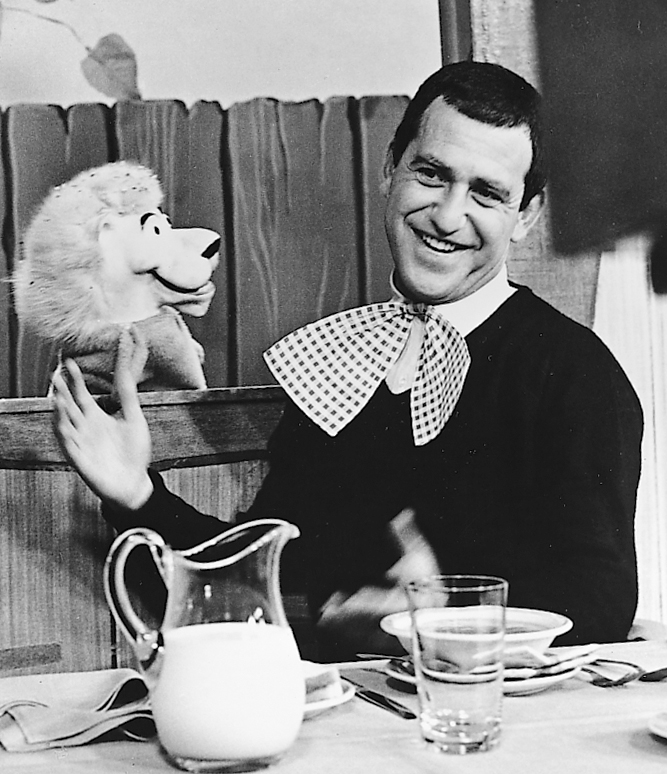
But in between jaunts across the country, Soupy always found time for regular trips back to Huntington, whether to perform at the Makiki Club, the Club Pompeii or just to stay in touch with his close friends or devour a handful of Stewart’s hot dogs, which he claims are the best in the world.
In 1978, he was co-starring on the hit show “Sha Na Na” where he was a regular for three years.
In 1979, he returned to his zany roots producing 90 color episodes of “The New Soupy Sales Show.” His old gang of White Fang, Black Tooth, Pookie and a multitude of custard pies assembled for one last run on television before finally retiring the show that had become legendary in America.
The 1980s saw more nightclub performances, game shows and talk shows for the now pepper-haired comedy veteran. Viewers working their remote controls could find him on “Hollywood Squares,” “The Mike Douglas Show,” “The Love Boat,” “The Merv Griffin Show,” “$20,000 Pyramid” (where he was one of the sharpest and quickest celebrity minds), “Saturday Night Live” and “TV’s Bloopers and Practical Jokes.”
In 1985 he was back in the radio business once again at WNBC in New York. But two years later the station was sold and despite a huge listening audience, he was without work again. Soupy then concentrated his efforts on his stand-up career which he honed and crafted to rave reviews.
Of his act, David J. Spatz, the dean of the Atlantic City night club critics, wrote, “Soupy sells cynics and doubters. The pacing and staging of his show is flawless. The word that comes to mind after watching Sales in action is classic.”
If there had been any doubt of his ability, Variety noted, “Soupy Sales is from start to finish a laugh riot,” while the New York Times said, “Soupy’s back and his hoarse, free-form delivery is as boisterous, zany and oddly fetching as ever.”
I heard West Virginia elected a new governor by the name of Gaston Caperton. Oh, I love that name. It sounds like a new drink. “I’ll have a Gaston Caperton.”
Over the years, Soupy Sales has been singled out on numerous occasions for his success in the entertainment field. In 1976 Marshall University recognized him as a distinguished alumnus; he returned to his alma mater in 1987 to speak at the Marshall University Sesquicentennial Celebration; and in 1990 the university presented him with an honorary Doctor of Humane Letters.
“Just call me Dr. Soupy,” he joked after the presentation. “And this doctor plans to make house calls.”
Although he made light of the prestigious ceremony, for those in attendance it was obvious how honored and emotional the 1949 Marshall graduate appeared.
In addition, his alma mater at Huntington High School and his hometown of Huntington have both placed him in their “Hall of Fames.”
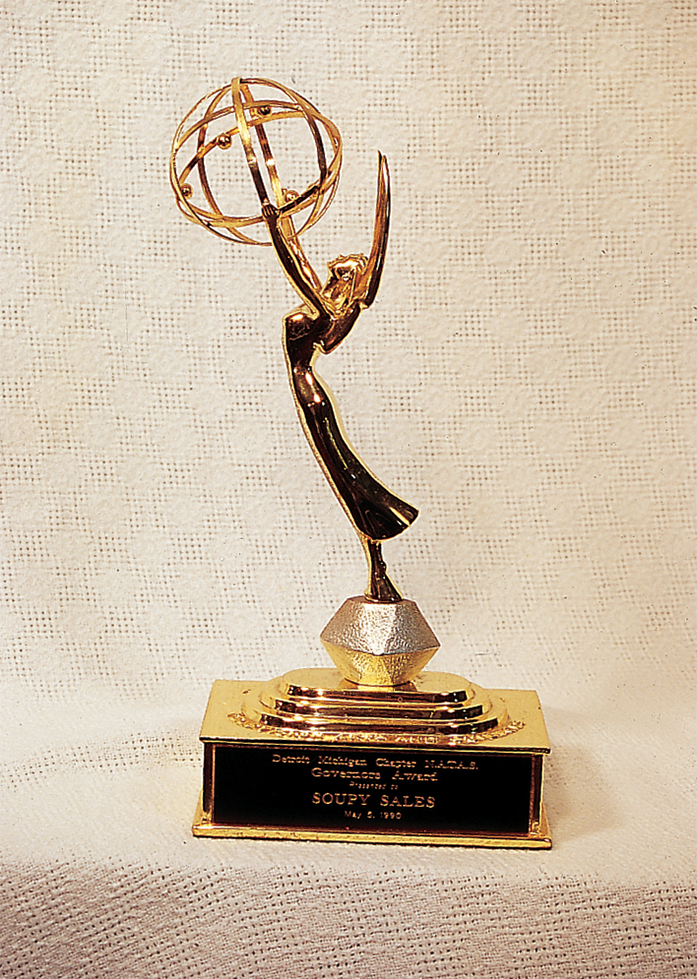
In 1990, he received a special Emmy award from the Detroit Chapter of the Capital Television Academy for his contributions to tele-vision. In addition, he has been inducted into the Museum of Broadcasting and received the Television Academy Silver Circle Award for 25 years in the industry.
More than just a television star, however, he has penned two books, “Soupy Sales’ Did You Hear the One About?” and “Stop Me If You’ve Heard It,” both compilations of his favorite jokes.
He has six record albums to his credit: “The Soupy Sales Show” (Reprise), “Up In The Air” (Reprise), “Spy With A Pie” (ABC-Paramount), “Do The Mouse” (ABC-Paramount), “Bag Of Soup” (Motown) and “Still Soupy After All These Years” (MCA).
He has appeared on Broadway and in numerous stock productions and has even made the transition to the big screen in such movies as “Two Little Bears” (20th Century Fox), “Critic’s Choice” (Paramount), “Birds Do It” (Columbia) and “Don’t Push — I’ll Charge When I’m Ready” (Universal).
His latest movie venture found him playing the part of Moses in the highly-acclaimed cult film, “… And God Spoke.” (Live Entertainment Inc.)
“It’s about two guys who get $15 million to make a Bible movie and they blow the money in the first week,” Sales explains. “So, the second week, instead of being able to afford Charleton Heston to play Moses, they get Soupy Sales.”
His performance in the film delighted critics. “Sales’ moments on screen have got to be among the funniest of the year,” raved the Los Angeles Times.
“I’m still waiting for someone in Huntington to put on a Soupy Sales film festival,” he jokes.
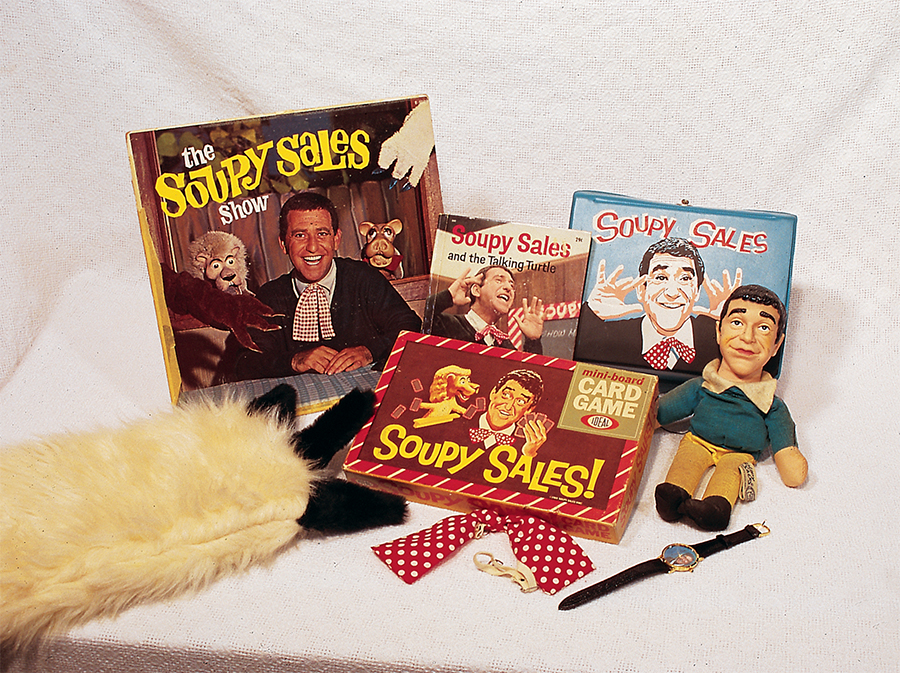
Perhaps one of Soupy Sales’ greatest honors was being featured on the prestigious A&E Biography Series last year. The promo for the hour-long episode announced, “As a young entertainer he had pie in the sky dreams of stardom. Little did he realize they’d land in his face, and yours. The gang’s all here and the Soup’s on. The extraordinary life of Soupy Sales, next on Biography.”
It was a special moment for all Huntingtonians when the episode first aired December 21, 1994. Jack Perkins, the distinguished A&E host, walked slowly to the camera and with his singular style announced: “Welcome to Biography. He had the biggest, meanest dog in the U.S.A. He had a lion who cursed in Italian and a hippo who danced the cha cha. And when he wasn’t talking to this menagerie he was usually getting a pie in the face. With Soupy Sales it was slapstick all the way. No messages, no lessons except maybe learning new dances like “The Mouse,” or hearing such sage-like advice as, ‘Be true to your teeth and they won’t be false to you.’ In the gone but not forgotten stable of early television local kid shows, Soupy Sales was, and is, a legend.”
After being featured on the A&E Biography Series, Huntington’s most famous son joined the ranks of such notable profiles as George Washington, Winston Churchill, John F. Kennedy, Martin Luther King, Jr., Elvis Presley and Madonna, just to name a few. Soupy’s profile, entitled “The Prince of Pies,” is repeated every six months on the A&E network.
And finally, to immortalize his place in television history, one of the questions in the “Trivia Pursuit” board game asks, “What television personality worked with White Fang and Black Tooth?” And that’s an answer everyone in Huntington should know.
Harold Frankel said that if he were elected mayor he would get things moving. And I believe him, because if he gets elected I’ll be moving out of town.
Today, Soupy Sales, 69, can be found in Las Vegas, Chicago, Los Angeles, Seattle, Houston — if there’s a nightclub to be found, Soupy’s usually on stage.
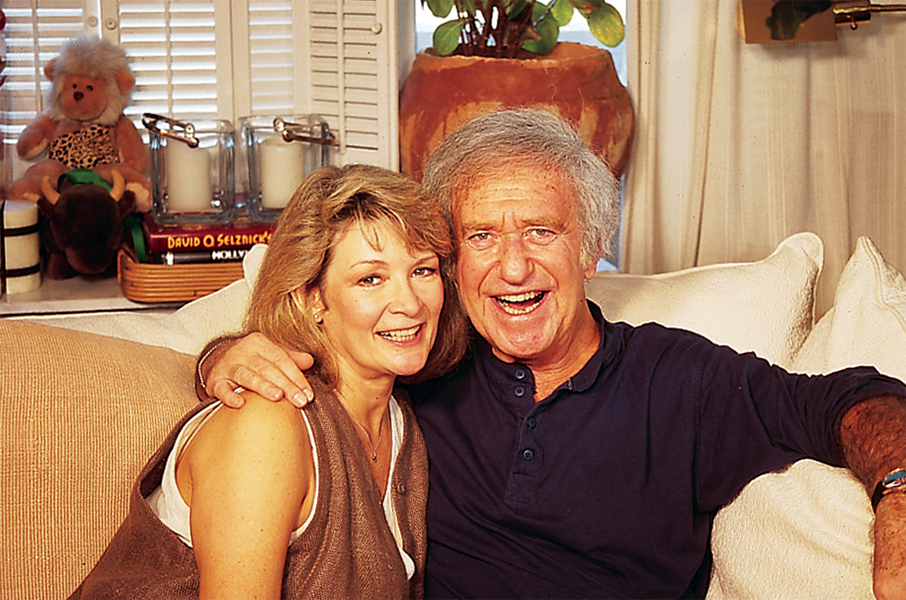
In between his stand-up engagements, he enjoys relaxing in his Manhattan apartment listening to his large collection of jazz records. In addition, he has become an accomplished amateur painter.
Soupy’s two brothers, “Hambone” and “Chickenbone,” have distinguished careers of their own. Jack Supman is an attorney in Lancaster, OH, and Leonard Supman is a doctor in Kingsport, TN. Soupy’s two sons from his first marriage, Tony and Hunt, followed their father into the entertainment industry. Both have promising careers in rock music having worked with David Bowie and other renowned performers.
But even with the heavy workload he still carries, family life and future projects in the works, Soupy Sales still finds time for regular visits to his favorite city in the country.
Of Huntington he says with affection, “I love the place. It’s where my first experiences in life were and my best friends still live there.”
In fact, Soupy makes a point of coming back to Huntington at least twice a year. His Stewart’s hot dog parties have become legendary. In between mouthfuls of frankfurters and root beer, he and his friends take time to reminisce about the good ol’ days and their mutual love for the community.
“Huntington is my hometown,” Soupy asserts. “Huntington is very near and dear to me. It’s my roots. I grew up there and I plan to be buried there.”
While it may be common knowledge that Soupy Sales is an accomplished entertainer, some might be surprised to learn that he is also a Huntington historian. With great accuracy he easily recounts people and places, streets and avenues, diners and dances, and other items of interest from a chapter in Huntington’s colorful past.
“Huntington was always a social town,” he reflects. “They even had fraternities and sororities in high school. We had great dances and everybody dressed up. We had great events like the Beau Brummel Ball and places like Amsbary Johnson’s, Dunhill’s, Angel’s and Foard & Harwood would donate clothes. Everybody would plan for months to go to the Beau Brummel Ball. Nobody would tell anyone what they were going to wear.”
As for Soupy’s impressions of Huntington today, he sees tremendous growth and positive change in the community, most notably at Marshall University and in the revitalized downtown. However, he is always quick to offer a helpful tip on how the city can be further enhanced.
“Huntington should have some concerts and festivals, whether it’s a jazz or comedy festival, for a week at a time. That is how you bring in the tourists. That is where the money is,” he asserts. “A comedy festival would be great in Huntington. I could come back and host it and the money could go to charity.”
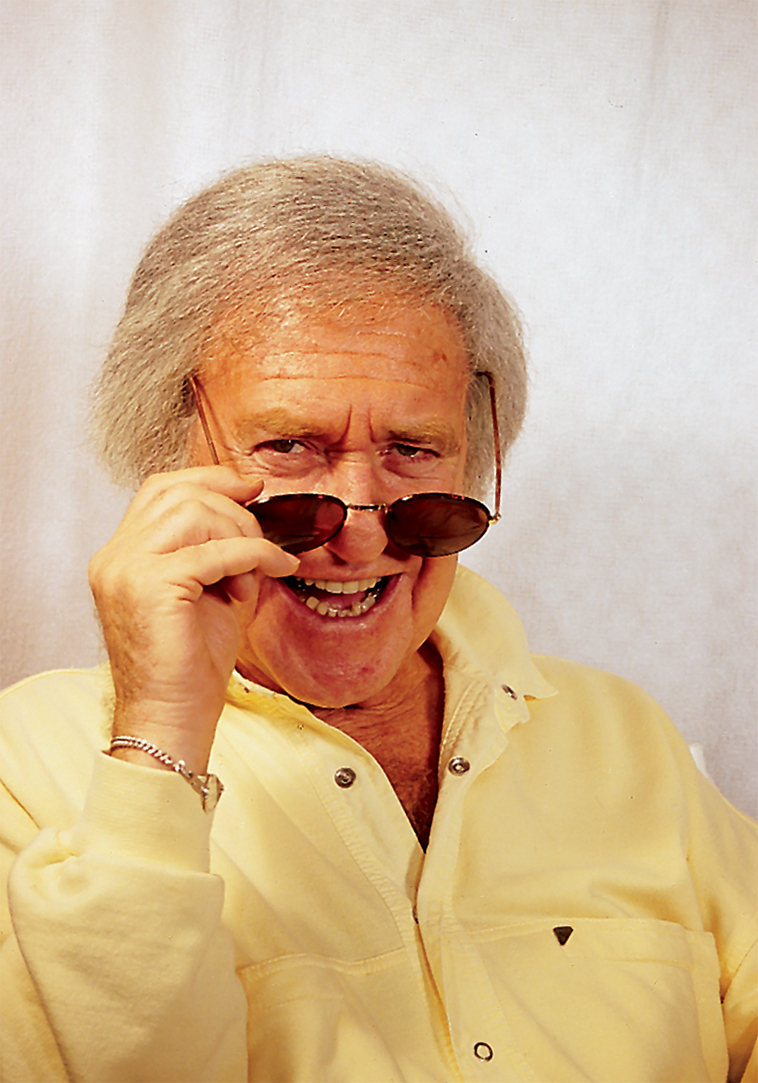
Soupy Sales is unusually candid about his long career. Who are some of the nicest people he has met in the business? He lists Frank Sinatra, Bob Hope, Dean Martin and Jonathan Winters, while on the opposite end of the spectrum he singles out Bill Cosby, David Letterman and Johnny Carson.
As for his opinion of the state of television today, he contends that the medium is going down the tubes (pardon the pun). Shows that make him laugh? Only two: “Roseanne” and “America’s Funniest Home Videos.”
Finally, what performers today make the comedy legend laugh? He counts George Carlin, Robert Klein, Jonathan Winters and Jim Carrey among his favorites.
• • •
Soupy Sales’ reign is now in its sixth decade and the royal jester shows no signs of letting up. “Retire?” he asks. “Why would I want to do that? I’ll be working until the day I die.”
He has come a long way from the west-end streets of Huntington where he mused family and friends and tormented teachers and referees. And along the way, he became a best friend to a generation of baby boomers.
“I grew up with Soupy Sales,” Dick Clark says with great affection. “I’ve always wanted to say that.”
Walking the streets of New York City, he is stopped at every corner by admiring fans who each remember something special about their time spent with the television star. Make no mistake about it, Soupy Sales is known and loved around the country and his place in the entertainment industry is firmly engraved.
“He has been called the last genuine comedy primitive, the final successor to the slapstick crown of Chaplin and Keaton,” notes A&E Biography. “But genius or jester, there’s no denying Soupy Sales is one of a kind.”
One of a kind indeed, the likes of which will never be seen again. He is comedy royalty — crowned with a custard pie.

